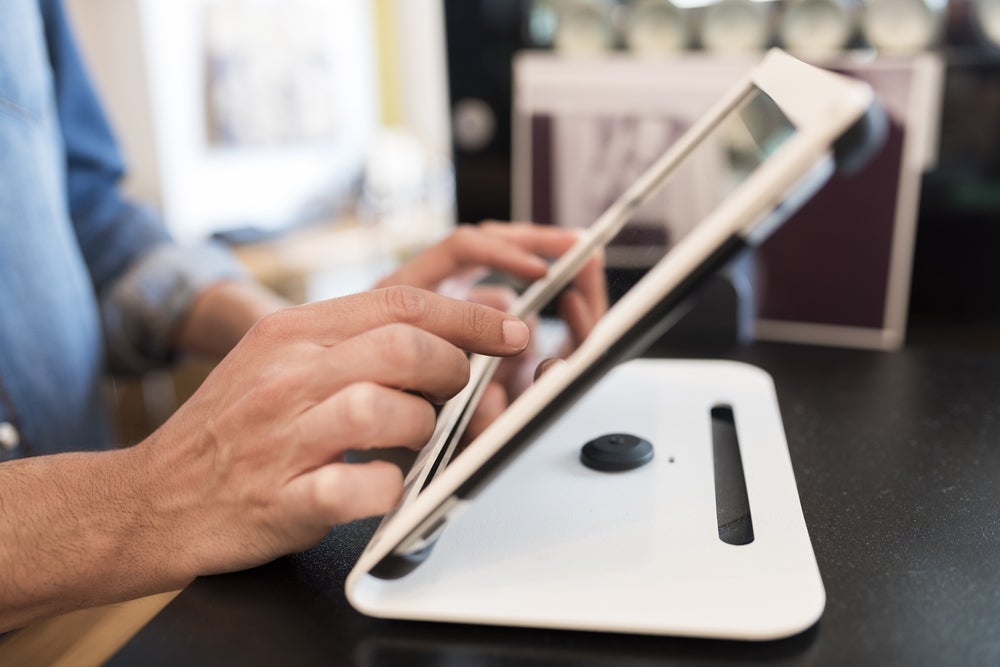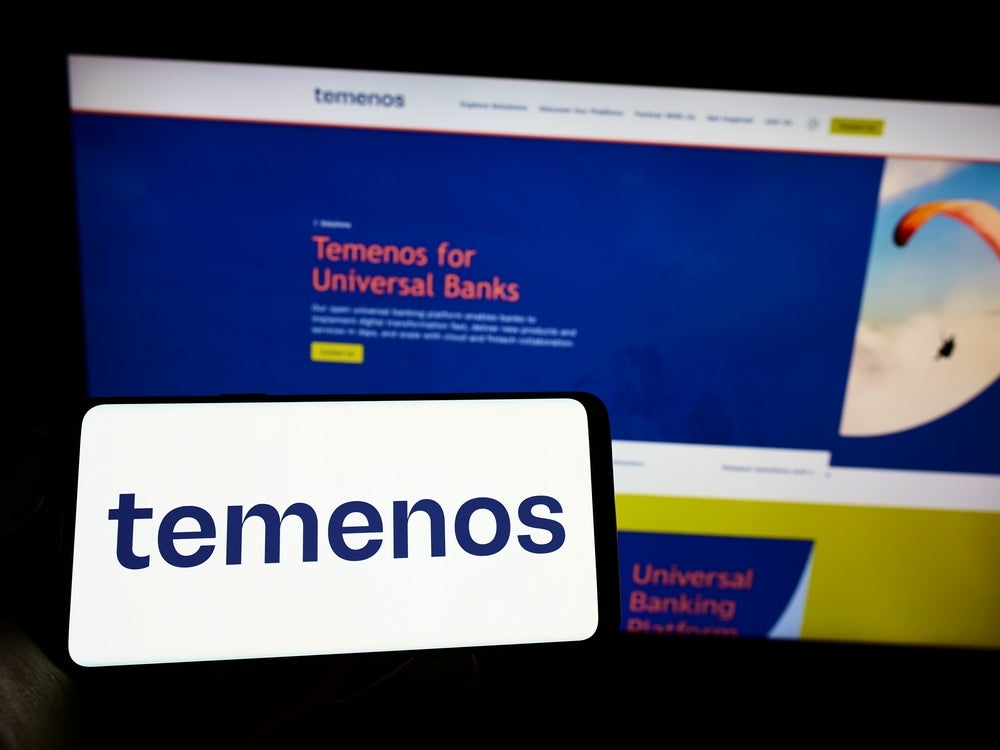SunGuard automates anti-money
laundering…
Canada terminates long-running
electronic cheque-clearing project…
Federal
Reserve Board hastens demise of the paper
cheque…
INSIDE Contactless talks up
prospects for the year ahead…
Gemalto
claims online security world-first…
REGULATORY
SunGuard automates anti-money laundering
Complying with anti-money laundering (AML) regulation is placing
an increasing burden on banks. This has prompted US financial
services technology vendor SunGard to make additions to its Ambit
core-banking solution automated AML functionality, as an installed
application or in a hosted environment on SunGard’s hosted delivery
platform, Infinity.
According to SunGuard, its AML solution incorporates watch-list
name checking and comprehensive monitoring of transactions and
accounts, a process that generates scored alerts based on
parameters such as customer risk, country risk, channel risk and
product risk.
How well do you really know your competitors?
Access the most comprehensive Company Profiles on the market, powered by GlobalData. Save hours of research. Gain competitive edge.

Thank you!
Your download email will arrive shortly
Not ready to buy yet? Download a free sample
We are confident about the unique quality of our Company Profiles. However, we want you to make the most beneficial decision for your business, so we offer a free sample that you can download by submitting the below form
By GlobalDataOther features include the ability to compare customer activity
to peers and integrated case management that facilitates review and
investigation of alerts.
SunGuard was ranked as the top supplier of risk technology to
the banking industry in US research firm Chartis Research’s 2008
assessment of the world’s top 100 risk technology vendors. SunGuard
also ranked first overall, a position it also held in 2007 and
2006.
SunGard’s solutions are in use by some 800 banks in 70 countries
including 41 of the world’s top 50 banks.
REMITTANCES
Cardless ATM solution targets unbanked in
US
According to the Centre for Financial Services Innovation there
are 106 million people in the US without a bank account, a market
payment systems developer Privier has set its sights on
serving.
Spearheading Privier’s strategy is its ATMSend solution, an
ATM-based cash-to-cash solution that requires neither sender nor
receiver to have a bank account or any form of payment card. For
banks to adopt ATMSend as a service Privier equips their
envelope-free ATMs with two icons, one which reads “Send Cash” and
the other “Pickup Cash.”
Consumers wanting to use the service to send cash must first
register their mobile phone number and personal information with
the bank. To send cash a user activates the Send Cash icon and
enters his or her mobile phone number on the ATM’s keyboard. A
system-generated 10-digit withdrawal number is then automatically
sent to the registered mobile phone and the sender in turn notifies
the recipient of the number.
To collect the cash, the recipient activates the Pickup Cash
icon at an ATM in the bank’s network and enters the withdrawal
number and the amount sent.
CHEQUES
Canada terminates long-running electronic
cheque-clearing project
Launched in 2003, the Canadian Payments Association’s (CPA)
Truncation and Electronic Cheque Presentment (TECP) electronic
cheque-clearing project has been scrapped just over two years
before its scheduled implementation at the end of 2010. The initial
plan to implement the project dates back to 1997.
In a statement, the CPA said its board of directors’ decision
was reached after a thorough review.
“During the review, it became clear the enhancements to
efficiency originally anticipated would not be fully realised due
to implementation delays and the ongoing evolution of the
marketplace towards electronic payments,” explained the CPA.
The CPA continued: “In view of these factors, and the fact the
current cheque-clearing system continues to serve both the industry
and payment system users well, the board concluded that not
proceeding further with the image-based clearing project is in the
best interest of Canada’s payments system.”
CONTACTLESS PAYMENTS
Sony’s FeliCa card set for production in US
US payment card manufacturer Versatile Card Technology’s (VCT)
goal of becoming the world’s largest manufacturer of smart cards
has been boosted after Japanese technology developer Sony appointed
the company as North American manufacturer of its FeliCa radio
frequency identification (RFID) payments card.
VCR’s appointment marks the first time the FeliCa card will be
manufactured outside of Japan and forms part of Sony’s strategy of
expanding the number of FeliCa issuers outside of Asia, the region
in which its use is largely confined.
Since its first deployment by Hong Kong’s public transport
system in its Octopus card guise, the FeliCa card has grown to
become the de facto contactless payments system in Japan.
FeliCa-based cards are also in use in countries such as Singapore,
China, India and Thailand. In total some 350 million FeliCa cards
and mobile phone-based RFID applications have been deployed.
PAYMENT SYSTEMS
Federal Reserve Board hastens demise of the paper
cheque
From 2 January 2009 using paper cheques will become a whole lot
more expensive in the US when the US Federal Reserve Board (Fed)
ups its paper cheque processing fees by an unprecedented 41
percent. The increase follows a 5 percent increase that came into
effect at the beginning of 2008.
However, the Fed noted that the continued migration to
electronic cheque imaging should result in an effective 10 percent
reduction in total cheque collection fees.
Further encouraging a move away from paper cheques, the Fed’s
fees for electronic payments will rise by only 2 percent in 2009.
This will, however, erode some of the benefits of an 8 percent
reduction in electronic payments processing fees that came into
effect at the beginning of 2008.
CONTACTLESS PAYMENTS
UK first for Liverpool
In a UK first, public transport company Stagecoach, MasterCard
and Royal Bank of Scotland have begun a one-year trial of
contactless payments on public transport services using bankcards.
Set to begin in the second quarter of 2009 and run for 12 months,
the trial involves 200 buses on 11 routes in Liverpool equipped to
accept payments by consumers using cards incorporating MasterCard’s
PayPass contactless technology.
The trial will also extend to a limited number of retail
locations in Liverpool making it the first significant extension of
bankcard-based contactless payments outside of London where they
were first introduced by MasterCard in September 2007.
According to MasterCard, at the end of the second quarter of
2008 nearly 37 million of PayPass cards and devices were in issue
globally with PayPass accepted at some 122,000 merchant
locations.
CONTACTLESS PAYMENTS
INSIDE Contactless talks up prospects for the year
ahead
Demand for French contactless payment technology developer
INSIDE Contactless’ (INSIDE) MicroPass semi-conductor chips is
racing ahead, the 100 million unit production mark being reached in
October.
Remarkably, the French contactless technology specialist only
reached the 50 million mark in May 2009. Launched in 2005 MicroPass
is used by 25 payment card manufacturers and 30 card issuers
worldwide.
“This year has surpassed our expectations, showing greater than
anticipated demand for MicroPass within the financial industry in
both the US and Canada,” said INSIDE vice-president of payments
Charles Walton.
Expanding the deployed base of MicroPass shows “great promise”
in 2009, he added, explaining that demand-drivers will include a
number of innovative solutions being added to the MicroPass
platform.
New solutions include a contactless payments sticker for
application to items such as mobile phones.
George Peabody, director of the emerging technologies advisory
services at consultancy Mercator Advisory Group, said: “While the
contactless payment technology industry has shown steady growth,
the firm’s progress suggests its platform is well positioned to
address both ongoing card security concerns and the opportunity
multi-application smart cards represent across multiple
markets.”
Meanwhile INSIDE has announced the opening of its MicroPass
platform to the development community to which it will make
available sample MicroPass cards, development tools and technical
support.
CONTACTLESs PAYMENTS
IBM lands Irish smartcard contract
US technology developer IBM has been selected by Ireland’s
Railway Procurement Agency to create and implement the
infrastructure for the first phase of its national Integrated
Ticketing System project. In the first phase, rollout of a reusable
pre-paid smartcard-based solution for contactless payments on
trains, busses and other public transport in Dublin will commence
in late 2009.
Dublin’s new ticketing system, which will have the capacity to
process 2 million transactions a day, will be based on a similar
public transport ticketing platform implemented by IBM in Singapore
in 2006 in conjunction with consultancy MSI Global.
Singapore’s ez-link public transport contactless payments card,
of which some 8 million are in issue, also facilitates low-value
retail contactless transactions, an application also envisaged in
the Dublin project.
COMPANIES
MasterCard hits half-a-billion mark in
Europe
European consumer enthusiasm for payment cards continued in the
third quarter of 2008 with MasterCard Europe reporting growth in
the number of new cards issued had pushed the total number of its
credit and debit cards in issue in Europe above the 500 million
mark. The scope of MasterCard Europe’s operations spans 51
countries.
The number of MasterCards in issue registered strong growth,
increasing by 15.4 percent compared with the third quarter of 2007
to 197 million. Purchase transaction grew by 13.2 percent to 1.6
billion while cash transactions registered an 11.5 percent
increase.
MasterCard’s Maestro-brand debit cards represented the largest
proportion of the total, accounting for 311 million cards, an
increase of 5.2 percent compared with the third quarter of
2007.
MasterCard noted very significant growth was recorded in Russia
where purchase transactions for its credit and debit programmes
increased by 52.7 percent compared with the third quarter of
2007.
MOBILE PAYMENTS
Vodafone and O2 team up in Germany
Two European mobile network operators, Vodafone and O2 have
joined forces to launch mpass, a direct debit payment service
targeting internet and mobile phone users in Ger-many.
A two-factor solution, mpass requires users to enter their
mobile phone number and a PIN when making a purchase online, either
via a personal computer or a mobile portal. When the PIN has been
entered, a text message is sent to their mobile phone. When they
confirm the amount it is debited directly from their account.
The mpass service is now available to about 14 million Vodafone
and O2 contract customers in Germany. Prepaid customers, customers
with company mobile phones and customers who use other providers’
networks have to register once to use the mpass service free of
charge.
PAYMENT CARDS
Canada embarks on chip and PIN rollout
Following successful completion of one-year trial, Canadian
payments association Interac has given the green light for a
national rollout of chip and PIN debit cards. The trial in
Kitchener-Waterloo involved 200,000 people.
However, while Interac members will begin issuing chip and PIN
debit cards to customers by the end of 2008, the process of
upgrading Canada’s ATMs and retail POS will be time consuming.
Interac believes the full benefit of the transition will only begin
to be enjoyed in 2010.
Interac has set deadlines for full conversion. Magnetic stripe
cards will no longer be accepted by ATMs after 2012 and by POS
terminals after 2015.
INTERNET BANKING
Online boom times for Maybank2u.com
Online business is booming for Malaysia’s largest bank Maybank
which recently launched a much-improved version of its
Maybank2u.com (M2U) internet banking service.
According to Maybank head of consumer banking Lim Hong Tat, M2U
has a customer base of 3.2 million registered users – about 60
percent of the country’s registered internet banking customers –
and is registering on average 90,000 new customers a month.
He added that Maybank’s service attracts some 157 million page
views per month. Visits to the website total 200,000 daily and in
terms of visitor loyalty, 80 percent are returning visitors.
Maybank’s M2U service is enjoying equally robust growth in
transaction activity. In the bank’s current fiscal year, which
began on 1 July 2008, the value of transactions has increased by 11
percent compared with the average in 2007-08 to MYR2.6 billion per
month ($725 million) while transaction volumes are up by 18
percent.
This builds on strong growth in 2007-08 when a 39 percent
increase in transaction volumes and 28 percent increase in value
were recorded with bill payment and funds transfer are the most
favoured transaction types.
SECURITY
Gemalto claims online security world-first
The world’s first optical reader designed to enhance online
banking security has been launched by Netherlands digital security
specialist Gemalto. Highly portable, the authentication device,
named the Ezio Optical Reader (EOP), has the same dimensions as a
standard payments card.
To use the EOP, a bank customer presents the device in front of
their computer screen and data needed for authentication and
signature generation is instantly read. The EPO requires no
software installation and eliminates the use of the keyboard during
the authentication session.
According to Gemalto, EPO is compliant with the latest industry
standards including MasterCard’s chip authentication programme,
Visa’s dynamic passcode authentication and the Germany’s Sm@rt temporary account number.







